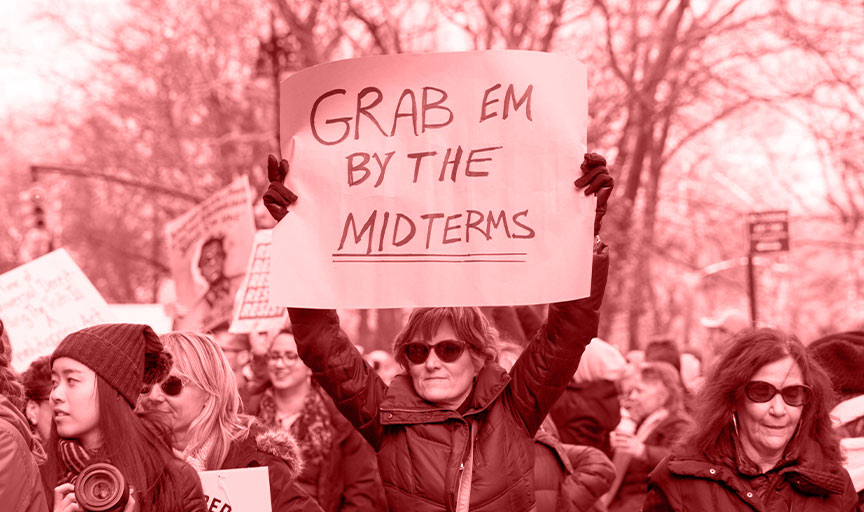By Abby Amoakuh
Published Dec 29, 2024, 09:00 AM
Reading time: 3 minutes
The Rise of Women’s Protest in the US
In the wake of a misogynist being elected to the highest office in the United States, many women began to take a stand. While white women are eager to lead the charge against this decision, there is a growing conversation about their accountability in his election.
The 2024 election cycle has been chaotic, especially for citizens concerned about issues such as abortion rights and women’s empowerment. Republican lawmakers have persistently targeted reproductive freedoms, while figures like Beyoncé have made significant strides in the music industry. Meanwhile, Donald Trump has made a remarkable return to politics, becoming the 47th president of the United States, which sent shockwaves through the feminist community.
Women Rallying Against the Misogynistic Leadership
In response to Trump’s election, the 4B movement from South Korea—characterized by its rejection of marriage, dating, childbirth, and relationships with men—has found traction among women in the US. The backlash against Trump’s presidency prompted some to join this movement as a means of protest against the misogynistic climate.
This year’s election highlighted the crucial importance of reproductive rights, prompting Trump to subtly adjust his hardline stance on abortion, IVF, and birth control in response to public sentiment.
Despite this, many liberal women remain anxious about a second Trump term and its implications for women’s rights. In defiance, they have aligned with the 4B movement, which broadly condemns violence against women and pro-natalist policies.
4B Movement: A Symbol of Resistance
This movement has taken on a significant role in the women’s protest against a leader they consider harmful. Social media has seen a surge of women sharing their experiences and supporting the movement, which encourages a departure from traditional roles in relationships with men.
The Racial Divide in Voting Behavior
Voting trends have revealed a troubling reality—while women of color largely supported Vice President Kamala Harris, a significant majority of white women (52%) cast their votes for Trump. This has sparked discussions about inter-group accountability among women. Many are questioning if white women’s support for Trump could be a decisive factor in the election’s outcome.
Divisions Within the Feminist Movement
The emergence of the 4B movement in the US has not been without controversy. Critics highlight the privilege of women opting for pronounced rebellion through aesthetics such as shaved heads, an act some women undergoing treatment for cancer or suffering from hair loss find deeply problematic. They argue this framing creates harmful stereotypes and fails to honor those genuinely affected by societal pressures.
Criticism of the 4B movement also includes arguments that it trivializes the struggles of women in countries where rights are significantly constrained. The juxtaposition of these experiences raises important questions about solidarity and privilege among different groups of women.
Continuing Support for Problematic Leadership
Amidst these protests, a striking fact remains: many white women continue to support Trump, echoing their voting patterns from previous elections. This has brought issues of race and gender to the forefront of the conversation about responsibility for the current political landscape.
As discussions about the legitimacy of the movement continue, many are calling for a deeper introspection among white women regarding their roles in upholding systemic inequities. It’s becoming increasingly clear that without addressing these intersections of race, class, and gender, movements like the 4B could risk becoming mere representations of dissatisfaction rather than vehicles for real change.
Ultimately, the path forward for women in the US involves recognizing their diverse experiences and struggles. A collective reckoning is needed, one that emphasizes accountability among women, particularly those within privileged demographics. This is the only way to truly dismantle the harmful norms that have allowed a misogynist to persist in gaining power.


